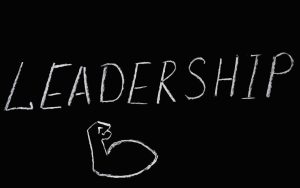Organizational leadership strategies offer a multitude of benefits for both you and your team.
By understanding and leveraging your innate strengths through tools like the HIGH5 assessment, you can enhance these benefits significantly. With a clear grasp of your natural talents, you’ll create more effective goals, direct your team with greater clarity and organization, and optimize task performance. The HIGH5 strengths test provides valuable insights that allow you to tailor your leadership approach, ensuring that you’re not just leading, but leading from your areas of greatest potential. This strengths-based approach to organizational leadership can transform how you guide your team and achieve collective success.
Having organizational leadership skills can surely help you stand out from the crowd of other employers. Business leaders recognize the importance of this leadership technique, but also understand it is difficult to develop. If you were previously disorganized and impulsive, it might take several months or years to be an effective leader.
If you are willing to put in the work, though, the essential skill of a leadership organization will immensely benefit you. In this article, we will describe why organizational leadership is important as well as its benefits and drawbacks.
What is Organizational Leadership? Definition & Meaning
Organizational leadership is a powerful approach that can be applied by all leaders, from managers and CEOs to digital team leaders. To excel in this leadership style, it’s crucial to understand your innate strengths. The HIGH5 strengths test is an invaluable tool in this process, helping leaders identify their unique talents and how to leverage them in organizational settings. By knowing your strengths, you can tailor your leadership approach to maximize your effectiveness and inspire your team more authentically.
What sets organizational leaders apart, though, is how they approach goals and challenges. The organizational style of leadership ensures you pay attention to all your goals, both long-term and short-term.
Similarly, organizational leaders instill organization in their teams.
Since organizational leaders place a high value on tidiness, both mentally and physically, they can remain calm in stressful situations. They encourage team members to remain laser-focused on the tasks at hand.
The organization also encourages positive communication strategies. Instead of allowing the workplace to become full of shouting, organized leaders know the importance of strategic communication.
Why is Organizational Leadership Important? + Benefits
Developing an organizational leadership style requires time and commitment, but the benefits are substantial and far-reaching. One key to accelerating this development is understanding your innate strengths. The HIGH5 strengths assessment can provide crucial insights into your natural talents, allowing you to align your leadership approach with your unique abilities. This alignment not only speeds up your growth as a leader but also enhances the benefits of organizational leadership, such as improved team engagement, increased productivity, and more effective goal achievement.
For instance, you will have a more interested and engaged team. Plus, they will remain calm in the face of conflict. In an ever-changing work environment, it is key to be as organized as possible.
List of 10 Benefits Provided By Organizational Leadership
Additional benefits of organizational leadership include:
- Team members will be more motivated
- Individuals are more goal-oriented, and thus achieve personal goals more often
- Productivity and efficiency will soar
- Learn techniques for communication and ensure the team communicates well
- Ensure conflict is avoided and de-escalation is quick
- Encourages the use of good ethics
- Helps your employees stay loyal and engaged
- Decreases your turnover rate and gets high-quality candidates more interested
- Helps you maintain a competitive advantage over other companies
- Boosts sales, profits, and revenues
Pro Tip From HIGH5
Leverage your strengths in organizational leadership by taking the HIGH5 test. Once you know your top strengths, consciously apply them to your leadership tasks. For example, if ‘Strategic Thinking’ is one of your strengths, use it to create more effective long-term plans for your team.
3 Examples of Organizational Leadership In Business
Organizational leadership can be utilized in any field, by almost any leader. You can apply the same type of strategy to motivate and increase organization in almost any employee.
Below, we have provided a few examples of how this managerial skill can establish more organizational and collaborative teams.
Organizational Leadership in Healthcare
Healthcare leadership requires an immense amount of communication and organization. When trying to direct a healthcare team, conflicts have to be minimized to an absolute minimum.
This form of leadership can help your employees turn conflicts into thoughtful discussions, benefitting patients.
Plus, when dealing with healthcare finances, staying organized and direct will ensure that key mistakes are avoided.
Hospitals are likely one of the most high-stress work environments out there. It is crucial to maintain calm during these moments, which an organization can help you do.
Organizational Leadership in The Workplace
In the office, organizational leadership offers some key advantages. Consider how goal-oriented your team is at the moment.
When you remove the mental clutter and distractions they have, they will be far more goal-oriented and successful. Plus, you will notice substantial increases in productivity and efficiency.
Additionally, conflicts will be less intense and more proactive. Loyal and skilled employees often develop as a result of organized leadership.
Some of the stress of leading a large team will be removed from the leader’s mind.
Finally, maintaining a competitive advantage will also be less challenging.
Organizational Leadership in Education
Educators often do not get enough credit for their leadership. To maximize your ability to lead, consider using organizational leadership techniques.
Organized leaders can effectively address a student’s individual issues. They can block out the noise to listen to what matters most.
Plus, organized leaders develop content that is truly engaging. They do not place much value on teaching the traditional way; instead, they are innovative.
Students typically enjoy this leadership style more, and are thus more engaged during class. You may also notice decreases in bullying after you create clear guidelines and consequences for it.
Key Components & Characteristics of Leadership
Leadership is a term that is often tossed around but rarely defined. This could have left you confused and discouraged you from becoming a better leader.
All the following components make up leadership.
Leadership
Leaders sometimes get nervous before taking in jobs with large responsibilities. Others are scared of leading because of fear of failure or rejection.
However, to be a true leader you must learn to take action and use your fear pad as fuel for work. You should also recognize that leading by example is the most effective way to motivate employees.
Recognize individuals when they do well, too. Soon, you will find your employees are more committed, passionate, engaged, loyal, and goal-oriented.
Ethics
Ethics guide our every action. They help us determine right from wrong. As a leader, you must listen to your conscience to help you make moral decisions. If you do not, then the backlash is likely.
Plus, you may find yourself uncomfortable or even deeply disturbed if you do not listen to your ethics. Organizational leaders keep their ethics in mind during the decision-making process.
You can discover someone’s true motivations by listening to their ethics. This can help you determine if they are someone you want on your team or not.
Communication
Every leader needs to know how to communicate. In today’s digital world, this means knowing how to write emails, talk on the phone, use meeting platforms, and so on.
You must also understand how and what to say to your team. What you tell your team should be centered around them as an individual. Change your communication style depending on who you talk to.
Actively listen to the other individual, too. Always try to understand your employee’s motivations, goals, desires, passions, and problems.
Be honest when giving feedback and do not be afraid to compliment someone if they perform a task well.
Strengths
Understanding that each team member has unique strengths is crucial in organizational leadership. The HIGH5 strengths assessment offers a scientific approach to identifying these individual strengths, enabling leaders to assign tasks more effectively. By having your team take the HIGH5 test, you gain valuable insights into each person’s natural talents. This knowledge allows you to align tasks with individual strengths, leading to improved performance, increased job satisfaction, and a more cohesive team dynamic. Remember, when employees work within their strength zones, they’re more likely to excel and contribute positively to the organization’s goals.
This way, your team will be far more productive and achieve far more common goals. Additionally, team members will be more statistics and less likely to leave work if you use a strengths-oriented approach.
Worldview
Leaders undoubtedly need to communicate their visions. If you truly have a passion for something, help others understand why this is so. They may develop a similar passion.
When employees are passionate, they are more willing to work and accomplish tasks. Share your vision for innovation with all your employees. Try to connect your worldview with how your product will benefit society.
If you instill a culture of innovation in the workplace, individuals will be more positive and hardworking.
Pro Tip From HIGH5
Create a ‘Strengths Map’ for your team. After everyone has taken the HIGH5 test, visually represent each team member’s top strengths. Use this map when assigning projects or forming sub-teams to ensure you’re leveraging your team’s collective strengths effectively.
How To Develop And Become a Good Organizational Leader?
Becoming a leader for any size organization is already difficult. However, incorporating management and organization into one technique is even tougher.
It is up to you to determine if the effort is worth the payout.
If you are interested in becoming an organizational leader, try understanding the strategies below.
Build your expertise
Becoming an expert is crucial in your journey to becoming an organized leader.
While finding a role model can be beneficial, it’s equally important to understand your own unique strengths and how they contribute to your leadership style. The HIGH5 strengths assessment provides a personalized insight into your natural talents, helping you identify which aspects of organizational leadership align best with your inherent abilities. This self-awareness allows you to focus on developing the skills that complement your strengths, making your leadership development more efficient and authentic. By combining external guidance with a deep understanding of your personal strengths, you can create a leadership approach that’s both organized and uniquely yours.
Additionally, you could take classes in person or online. There is even an organizational leadership degree you can work toward.
All of these strategies will ensure you are more experienced when you start leading solo.
Develop a reputation for taking the lead
Reputations do matter when leading a team. If you have a poor reputation, it could hurt your team’s trust in you. It will be difficult to convince them to do as you say.
On the other hand, having a reputation for being helpful, caring, and successful will make your advice more valuable to your team members.
Then, they will perform the tasks to the best of their abilities and will also value your compliments.
Be clear about your desire to lead
Once you finish your education, do not expect leadership opportunities to simply pile up in front of you. You have to seek them out. Ensure that all the leaders you know understand you have the desire to lead.
When in interviews, ensure that the interviewer senses that you truly want to be a leader. Make your passion absolutely clear. Talk about how you got interested in leadership, for example.
If you struggle with finding a job, never give up. If you are a true leader, you will see the struggle is worth it.
Create positive working relationships
Some workplaces consist of completely isolated individuals solely focused on one task. This strategy is not usually the most effective. Instead, encourage collaboration and communication in the workplace.
If individuals collaborate, work will get done more quicker. Individuals could then also focus on the tasks they do best, instead of trying to do everything by themselves.
By using a team-forward approach, conflicts will also be less likely.
Volunteer and be a part of an organization
Leaders do not have to sit alone, isolated in their executive cabinet. Instead, the best leaders want to be out there working with their teams. Try to unite different groups and departments.
Take part in discussions and encourage others to share their thoughts. Try not to isolate departments too much. Instead, use the same group-forward approach as previously described.
This way, communication is more seamless.
Take opportunities for professional development
Online degrees and in-person alike can both increase your background knowledge and teach you many new leadership tactics. Such degrees do not have to take many years to acquire, too.
Many online programs offer quicker and less formal classes as well as flexible schedules. These programs help you think like a leader and ensure you understand the basics of leadership.
Therefore, you will not feel unprepared when you land your first leadership job.
5 Amazing Organizational Leadership Books
If you are struggling to understand organizational leadership, try learning from some experienced leaders. One way to do this is by reading books.
Books will expose you to numerous leadership styles and techniques, including organizational leadership. Plus, they will help you think critically.
Below are a few great books on organizational leadership.
1. Switch: How to Change Things When Change Is Hard, Chip Heath and Dan Heath
Change is usually challenging to deal with. If you have a strategy that works, even if it does not work very well, it is human nature to stick to it.
Chip Heath and Dan Heath outline why this mindset is damaging to businesses. They help readers understand the importance of change and discuss numerous strategies to make change less difficult.
When changing from a traditional leadership style to an organizational method, this book can be an excellent resource for navigating the transition.
2. Organizational Culture and Leadership, Edgar H. Schein
Organization and change are both abstract concepts to some degree. Edgar Schein ensures that even inexperienced businessmen can understand them through direct and descriptive writing in this book.
He outlines the organizational leadership role in ensuring the team stays organized. Additionally, he highlights how organization plays a role in business culture and achieving goals.
If you want a practical overview of organization in the business, consider this book.
3. Reframing Organizations: Artistry, Choice, and Leadership, Lee G. Bolman and Terrence E. Deal
Bolman and Deal connect the concept of organizational leadership with reframing. This technique involves looking at moments through different worldviews and lenses.
The book focuses on four main lenses/frames: the structural frame, the human resource frame, the political frame, and the symbolic frame. Each of these frames reveal different elements relating to leadership.
They also cover how an organization can help you stay focused on the unique differences between each of the frames.
4. The Five Most Important Questions You Will Ever Ask About Your Organization: An Inspiring Tool for Organizations and the People Who Lead Them, Peter F. Drucker et al.
There are five main questions that every leader needs to understand. Without having an answer, you cannot focus on the intricacies of organization, Human Resources, and so on.
The text covers these five questions in the following format: What is our Mission? with Jim Collins, Who is our Customer? with Phil Kotler, What does the Customer Value? with Jim Kouzes, What are our Results? with Judith Rodin, What is our Plan? with V. Kasturi Rangan.
Drucker brought on business and organizational experts to discuss each of these crucial questions with him. Answering these questions will ensure you can be a serious and inspiring leader.
5. Crucial Conversations: Tools for Talking When Stakes Are High, Kerry Patterson
If you want to be an organized leader, you must remain calm under pressure. It is easier said than done, though. Being calm is what keeps you from leaving the world of organization and entering the world of chaos and clutter.
In this book, Kerry Patterson outlines the best communication methods for leaders.
She talks about how to engage employees when they are stressed, how to communicate well under pressure, and how to ensure others do not stop being organized under pressure.
Frequently Asked Questions About Organizational Leadership
What jobs can you get with organizational leadership?
Many new job opportunities can open up for you if you decide to get an organizational leadership degree. For example, managerial positions in certain fields are options for those with this degree.
If you want to specialize in one field, such as healthcare or education, you could also work in those fields. Additionally, over time, you could become a C-Level executive.
If you prefer to work for yourself, you will be suited to be a startup executive.
Is an organizational leadership degree good?
This depends on what you search for in a degree. If you decide to get an organizational leadership degree from a private institution, and it takes over 4 years, then you may find yourself with a large sum of debt.
On the other hand, if you take online courses from Coursera or a similar platform, you can get a certificate in a few months. The cost is exceptionally low, too.
In either case, you will learn how to lead a team, stay calm under pressure, inspire others, and far more.
Is organizational leadership a BS or BA?
Getting an organizational leadership degree is not as clear-cut as getting an education degree of business degree.
Some colleges/institutions offer the course as a BS, while others offer it as a BA. ASU Online, St. Thomas, Eastern, Fresno, and Northwest University all offer the course as a BA.
However, Thomas Edison State University and Pennsylvania State University offer it as a BS.







